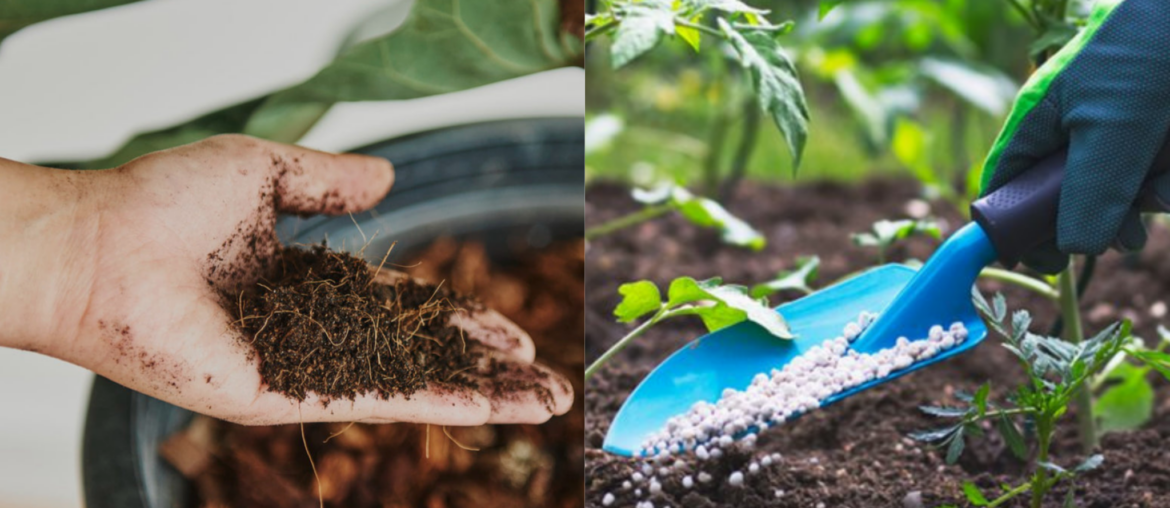Organic compost is one of the oldest means of enriching the soil. Literally, the first proof of actual organic compost from the Scots dated back to 12,000 years ago. That’s the Stone Age, a very long time ago. So why do people use fewer organic composts, you ask? Well, because it smells; some regions even use fecal matter for organic compost, which is not exactly sanitizing, or appetizing, to be honest.
Thanks to scientific advances, chemical fertilizers are born. They give the soil the exact nutrients it needs. Because certain chemicals can increase the growth of certain parts of their crops, more farmers will choose chemical fertilizers over organic compost.
But are chemical fertilizers really good for the Earth? Tenere will shed light on the question of organic compost versus chemical fertilizers: which one is better for the Earth? But first,
What are chemical fertilizers and organic compost?
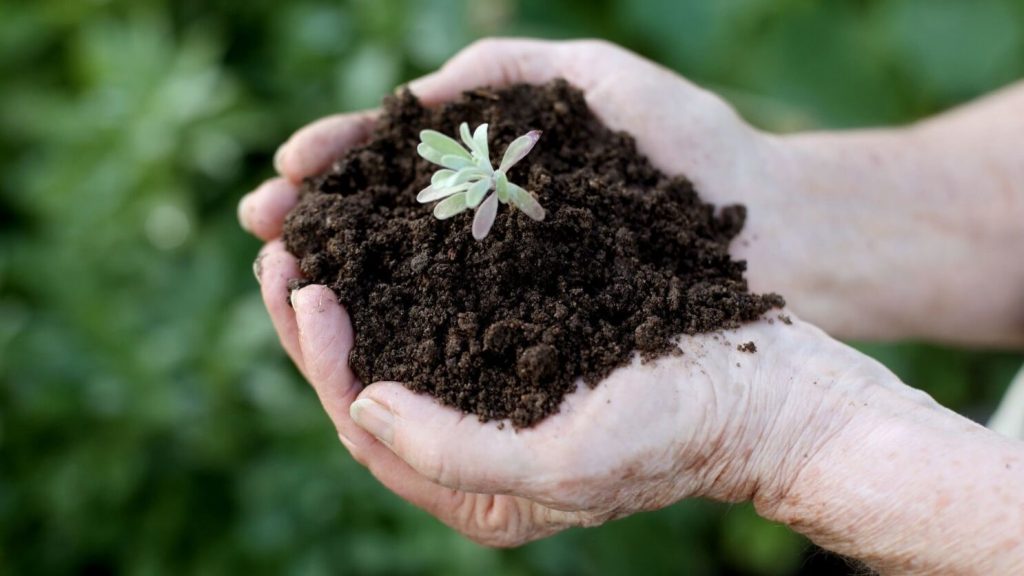
The phrase “chemical fertilizer” refers to a wide range of synthetic compound chemicals developed specifically to boost your crop productivity. Some chemical fertilizers, for example, are “nitrogenous”—that is, they include nitrogen—whereas others are phosphate-based. Potassium is found in other fertilizers as well.
On the other hand, organic compost is a combination of substances that are used to nourish the soil. It’s often made by decomposing plants, food waste, and reusing organic materials. Simply defined, organic composting is what happens when organic material such as food scraps, leaves, and animal waste decomposes correctly.
While both are used in gardening, horticulture, and agriculture, people tend to favor chemical fertilizers. It just seems more convenient to buy something synthesized in a lab. Back to the question of which one is superior, organic compost or chemical fertilizer, let’s examine each thoroughly.
In terms of efficiency,
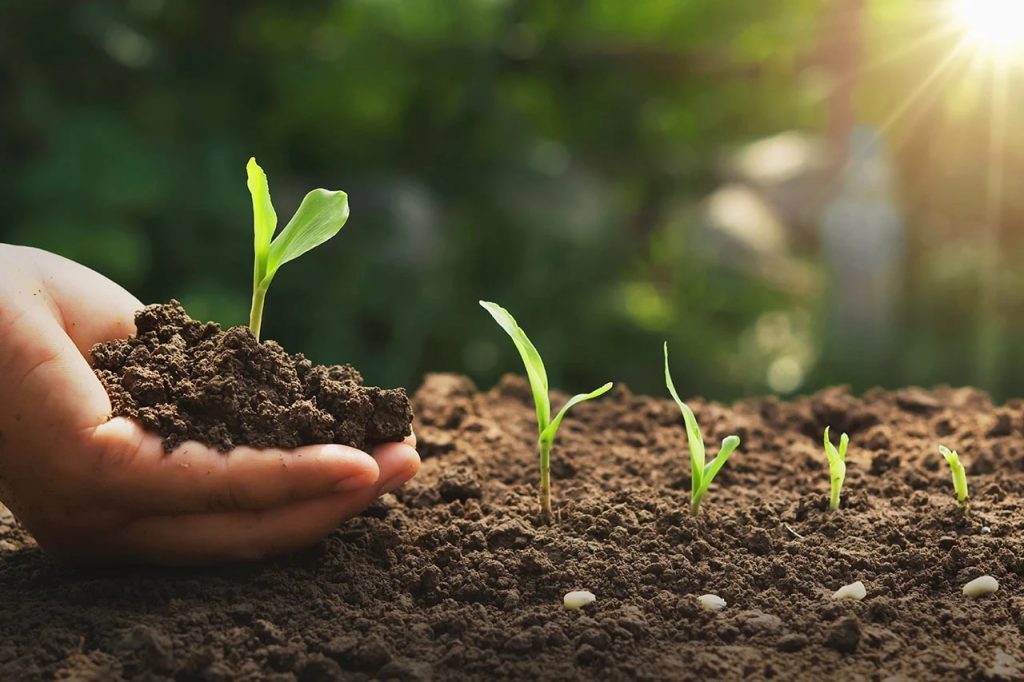
Chemical fertilizers have all the necessary chemicals ready to go into the soil. This means you will see improvements to your soil immediately.
Compared to the instantaneous effects of chemical fertilizers, organic composts need more time to work their magic. Even after your organic compost has ripened, it will still need time for microorganisms to deteriorate and release the nutrients into the soil.
Conclusion: In terms of fast-acting effects, chemical fertilizers win hands down.
In terms of cost:
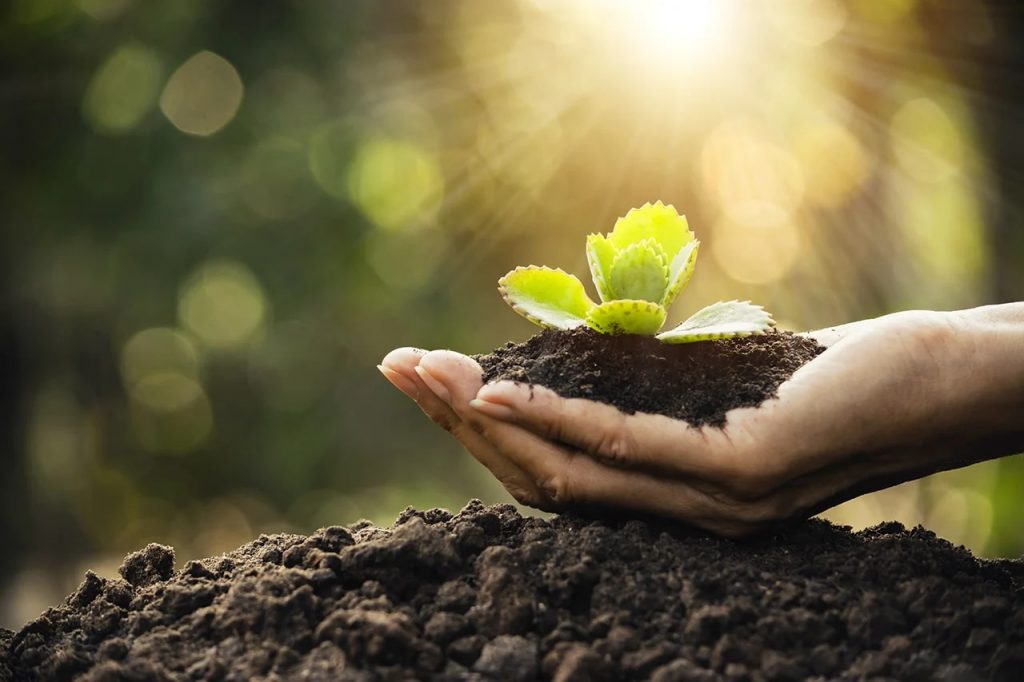
Being a product made in a lab, you would think that chemical fertilizers are expensive. And that is partially true; a pound of chemical fertilizer is more expensive than a pound of organic compost. However, they are actually dirt-cheap. This is because they pack more nutrients per pound of weight.
Compared to chemical fertilizers, organic composts are more expensive because you need more organic composts to achieve the same amount of nutrients as chemical fertilizers. But you can save more if you organically compost your waste instead of purchasing it.
Conclusion: This is a 50/50 case. If you are buying, go for chemical fertilizers because you get more for the same price. But if you can make your own organic compost, then this will save you a lot more money.
In terms of long-term land use:
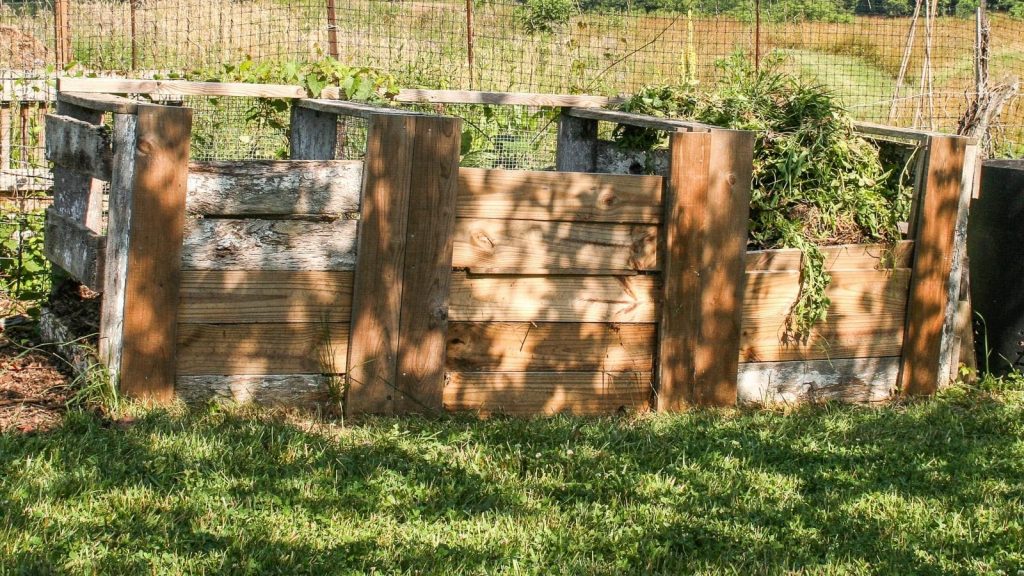
Chemical fertilizers trump organic compost in terms of efficiency and cost, but for a price. Excessive use of chemical fertilizers harms the soil. Excessive use of chemical fertilizers, on the other hand, has resulted in substantial soil deterioration, nitrogen leaching, soil compaction, a decrease in soil organic matter, and a loss of soil carbon.
Organic composts, on the other hand, increase the soil’s ability to store nutrients while supplying it with much-needed nutrients. It enhances nutrient retention by improving the soil’s cation exchange capacity. Organic composts also degrade organically, releasing vital macro and micronutrients while feeding the soil’s beneficial biological organisms, keeping the land alive for much longer.
Conclusion: If you plan to keep your land alive and can grow crops for a long time, use organic compost. It can keep the soil alive with microorganisms. If you are opting for longevity, stay away from synthetic fertilizers. Just like pesticides, they destroy soil microbes, making it difficult or impossible for the soil microbiome to operate effectively.
In terms of benefits to the ecosystem:
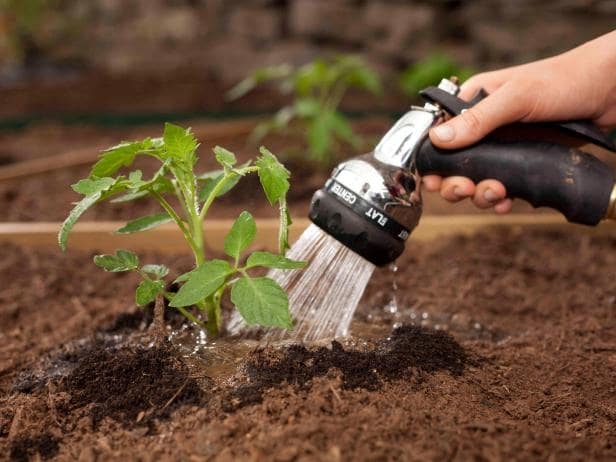
It sounds ludicrous, but chemical fertilizers kill your land. The chemicals do not support life or soil health, and even “full” packets lack the decomposing matter required to restore soil structure. Chemical fertilizers, in reality, do not replenish many trace minerals that are gradually depleted by repeated crop plantings, resulting in long-term soil degradation.
Organic compost adds nutrients and fosters the growth of beneficial microorganisms, insects, and earthworms. In other words, it helps foster the ecosystem of the soil and increases its moisture-retaining ability, thus keeping your field nutritious for a long time.
Conclusion: If you want your lot of land to grow crops for a long time, use organic compost. It makes sure the ground ecosystem stays alive, which makes it a better long-term effect.
In terms of its effects on human health:
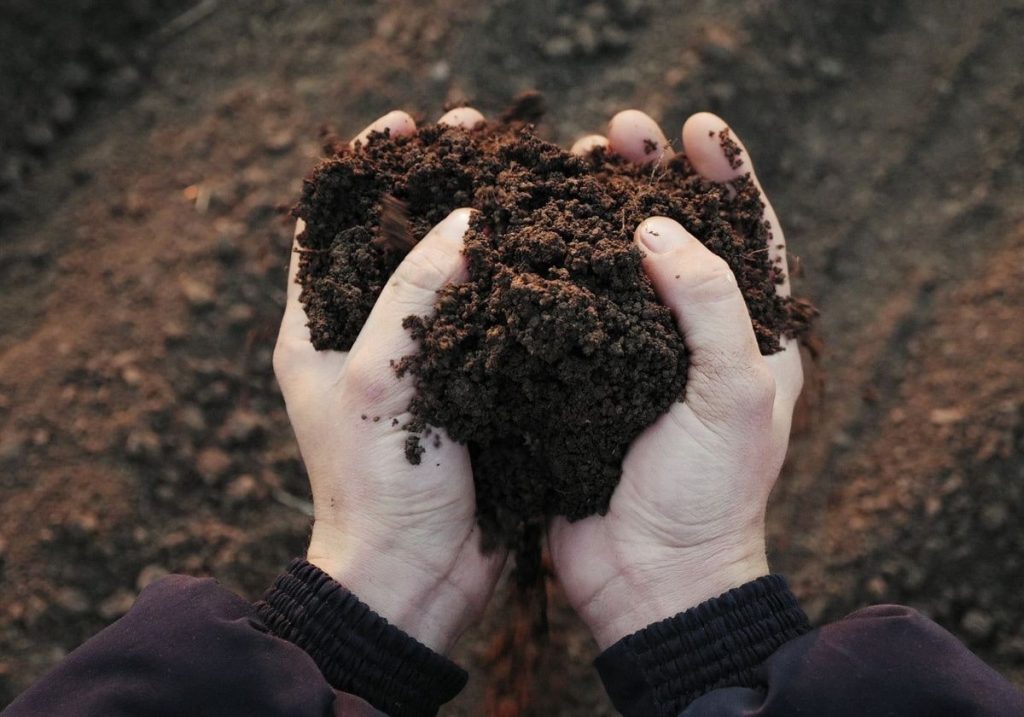
Chemical fertilizers are not our healthiest friend. Excessive use of synthetic fertilizers is hazardous to human health. It pollutes surface water through runoff. Plus, the high level of nitrates and nitrites may induce diseases such as hemoglobin problems, Alzheimer’s disease, and diabetes mellitus. Oh, and their production is toxic to human health, too.
When it comes to health, organic composts are relatively risk-free. Health issues stemming from organic compost, such as fungal-related diseases, affect just a small number of people. The pathogens that most of us mistakenly think come from organic compost are actually in manures instead.
Conclusion: Chemical fertilizers leave a hazardous footprint on the products they are applied to, which makes them hazardous to our health when we consume food grown with chemical fertilizers. If you worry about your health, just go with food that uses organic compost in production instead.
In terms of sustainability:
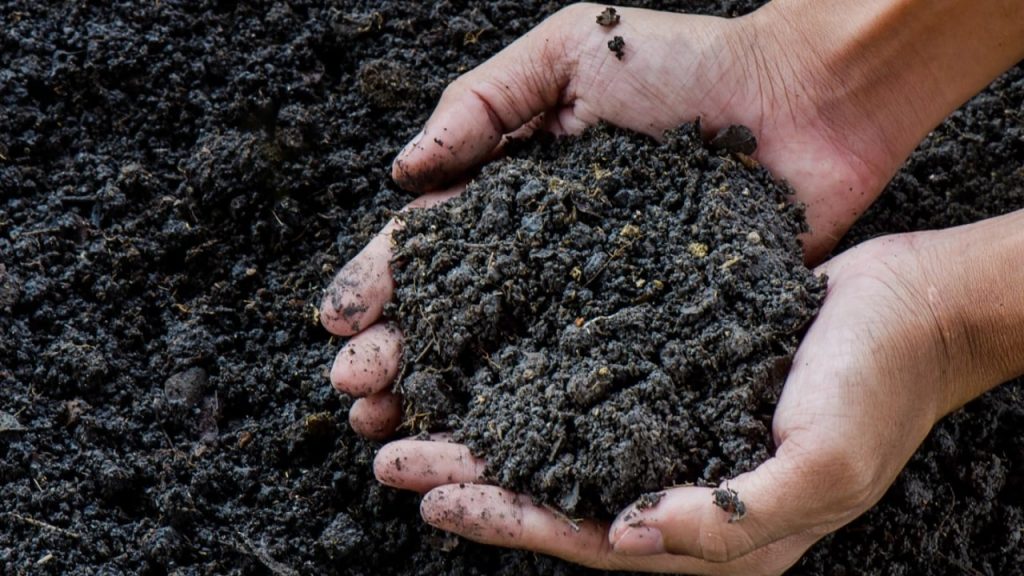
Chemical fertilizers are not sustainable. Because synthetic fertilizers have higher nitrogen and phosphorus levels, they can be harmful to the ecosystem. Phosphorus water runoff from fertilizer-using farms has contributed to the problem of Lake Erie’s algae bloom, which has been disastrous to aquatic life in the region. Not to mention, most chemical fertilizers are produced with fossil fuels, which is not sustainable.
On the other hand, organic compost is considered organic fertilizer. The process of organic compost makes use of organic wastes, turning them into nutrients for the crops. It also carries abundant benefits for the environment. Organic composts hold a lot of water, which helps to prevent and reduce land erosion and water runoff and provides a more nutritious ground for plants.
In terms of sustainability, organic compost reigns supreme. They don’t harm the ground and its ecosystem, but instead, keep it viable for future crops. Organic compost also takes zero fossil fuel to produce, as well as being a viable resource to lower methane emissions for waste food.
Why is composting important in sustainability?
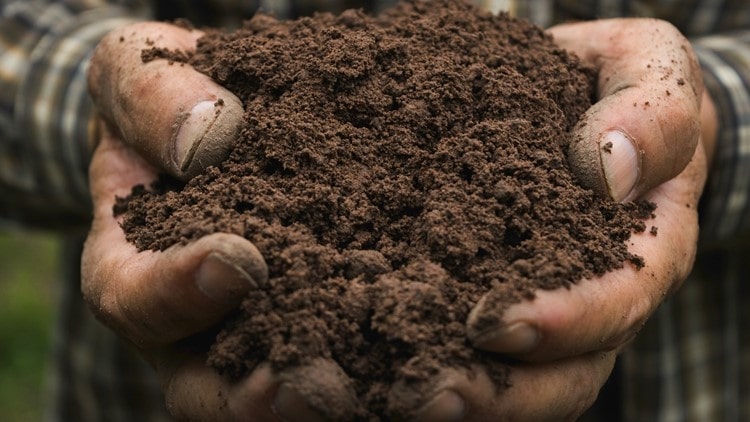
Trees and crops rely on minerals and nutrients in the soil to grow, such as potassium, phosphorus, and nitrogen. And both organic compost and chemical fertilizers provide these nutrients for your crops.
We have established that organic compost is the better contender for sustainability in farming. Yet, organic composts are not the one-size-fits-all solution to methane emissions from landfills, but they are the most effective one. Partly because it’s something everyone can do.
Food waste contributes greatly to methane emissions. Every 100 pounds of food waste disposed of in a landfill emits 8.3 pounds of methane into the environment. Composting keeps this food away from landfills, turning them into a means of sustainability.
What can be used for composting?
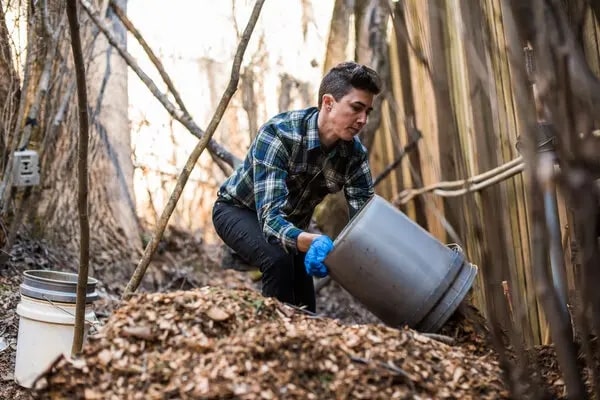
Technically, anything can be used for organic composting:
- Food waste from cooking: Overipened fruits and vegetables, eggshells, nutshells
- Coffee grounds and filters, tea bags
- Papery waste: Shredded newspaper, cardboard, paper
- Throwaway or dead plants: Grass clippings, houseplants, yard trimmings, hay and straw, and leaves
- Sawdust, wood chips, cotton, and wool
- Fireplace ashes
Where to get organic compost?
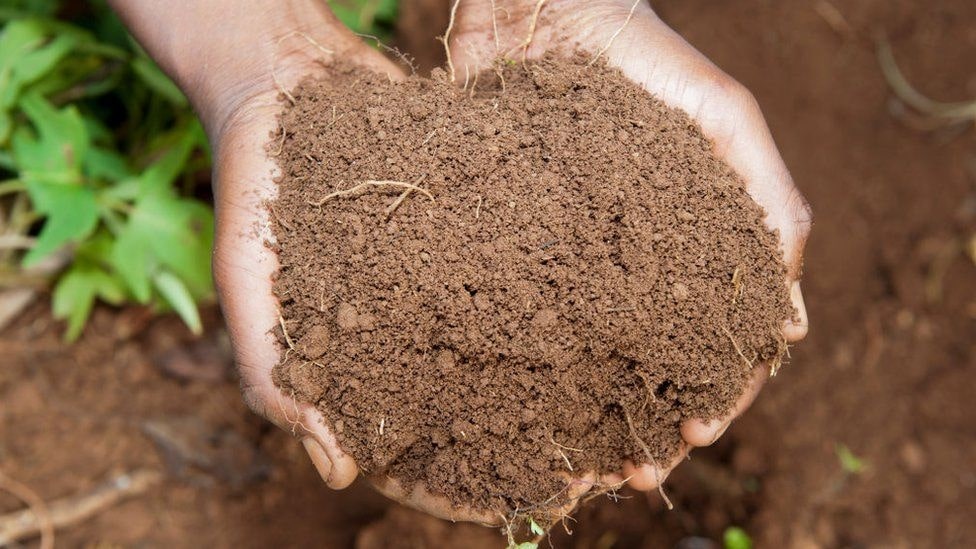
If you are too afraid to get your hands dirty, or maybe just don’t have enough compost for your crops, here are a few places to get good organic compost:
- Garden centers: They can supply you in small to moderate amounts, as well as for bulk buying.
- Topsoil/mulch suppliers: These guys will have all the mulch you need. You can even get a few tips from them on what is best for your plants or crops.
- Online e-commerce: Craigslist, Amazon, and eBay have pretty decent compost sellers.
- Big box stores: Home Depot and Lowes offer compost in small bags. If you don’t need much, these stores should suffice.
How much is organic compost?
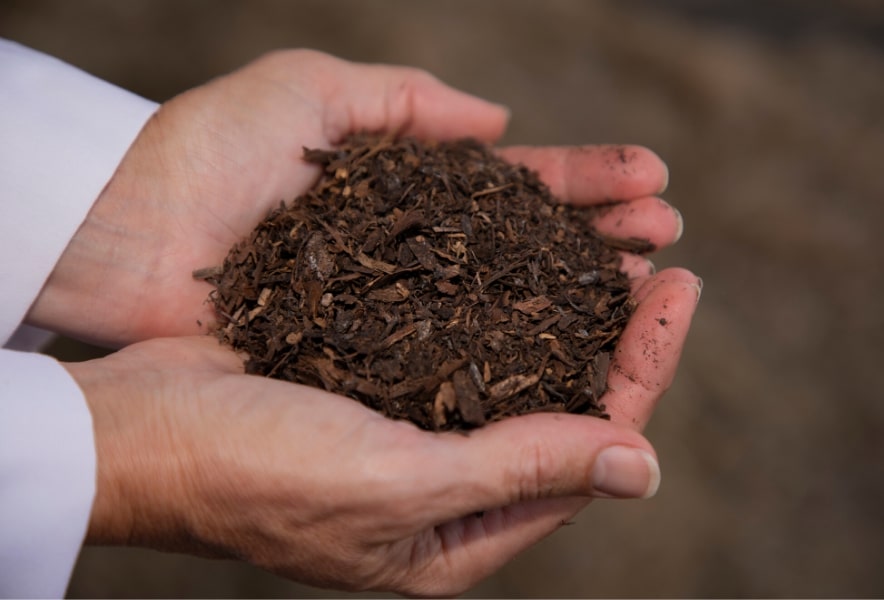
Organic compost is more expensive than chemical fertilizers. For bags, it could be anywhere between $0.30 and $20+ per 10 lbs. Bulk buying will get you a lower price, $10-150+ per cubic yard.
If this is still outside of your price range, try using a coupon from Tenere. Tenere has partnered with many stores online, and every time you purchase via our links, you are contributing to the tree-planting efforts worldwide. Find out more about effort right here.

